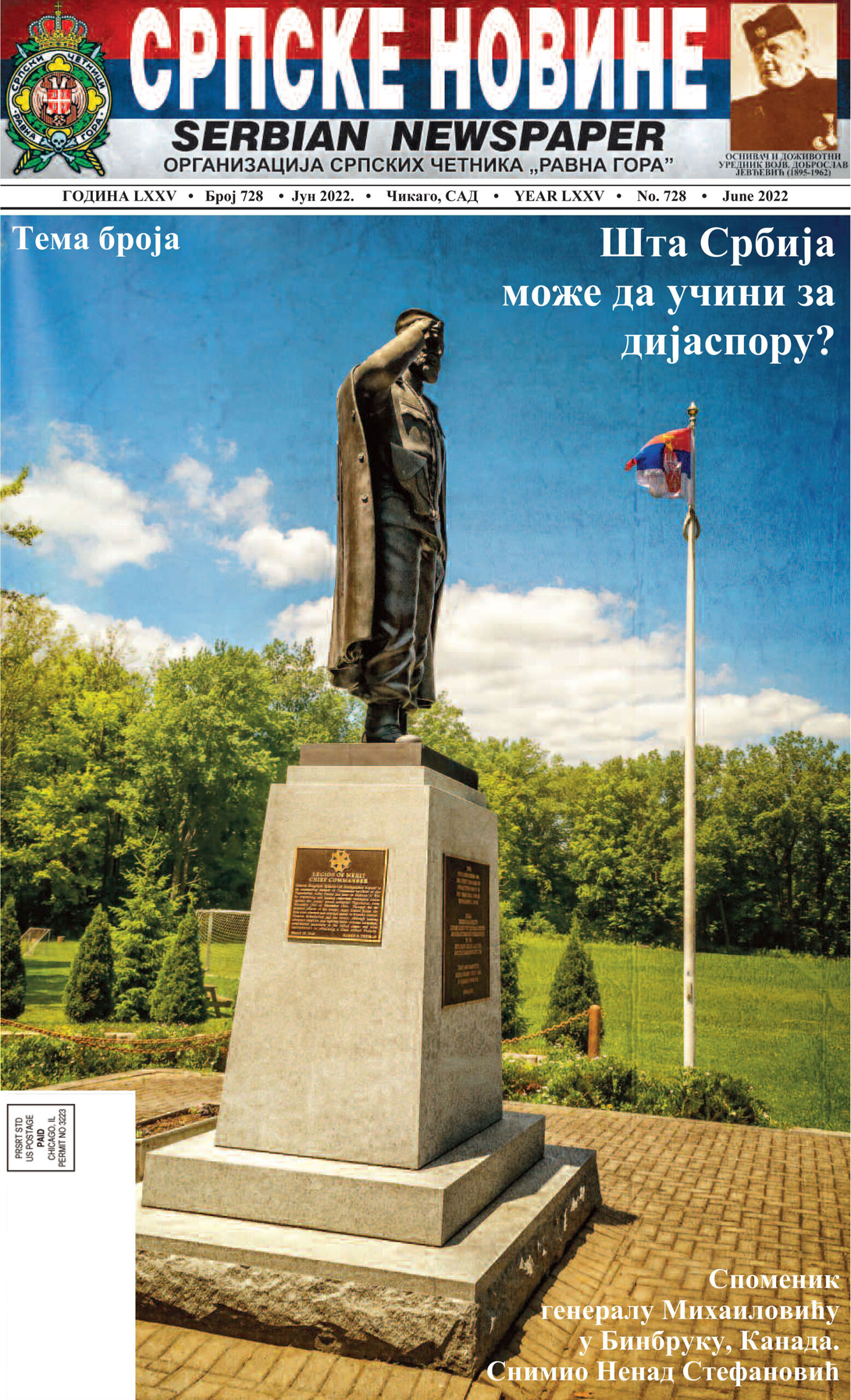


Regarding the question of what Serbia can do for the Serbian diaspora, proposed by the Government of Serbia, successors of the World War II emigration are not seeking positions in the Serbian government and are not seeking war reparations. Only historical facts and sincerity is required from the Serbian Government. That being said, we would like to see, first and foremost, a change in the Government’s website regarding the section on World War II.Here is our suggestion of what should read in that section:
World War II and its effects (1941-1945)
The ruthless attitude of the German occupation forces and the genocidal policy towards the Serbs by the Croatian Ustashi regime generated a strong Serbian civilian resistance beginning in Serbia in mid May 1941 on Ravna Gora, under its leader Colonel Dragoljub Mihailovich, who was later elevated to the rank of General and Minister of Defense, initiating the 3rd Serbian Uprising which along with Serbs included many Slovenians, Yugoslav Muslims and a smaller number of Croatians.
During WWII Serbia had two guerrillas: the Chetniks (Yugoslavian Army) and the Partizans. The Yugoslav Army led by Mihailovich, supported by the Yugoslavian Government in exile and the Allies, was the first resistance in Europe against Hitler, other occupying forces and domestic traitors. Mihailovich, who is credited for the largest rescue in military history of Allied airmen shot down behind enemy lines, was posthumously decorated with the Legion of Merit medal by U.S. President Harry S. Truman in 1948.
The Partisan movement led by Communist Josip Broz Tito entered the war in July 1941, 2 months later, after the collapse of the Soviet/German pact, strictly along Soviet party lines and was also supported by the Allies. By the end of 1944, with the help of the Red Army, following the betrayal of the Yugoslav Crown and General Mihailovich by the Allies (specifically Great Britain), the Partisans allegedly “liberated” Serbia. And, by May 1945 the remaining Yugoslav territories, meeting up with the Allied forces in Hungary, Austria and Italy.
General Mihailovich was decened and handed over to Tito by the British on March 13, 1946, convicted and executed by the new regime on July 17th of that year under false charges of being a Nazi collaborator.
In Yugoslavia the Serbs endured the greatest loss in the war: more than 1.000.000 Serbs were killed and national damages were estimated at 9.1 billion dollars according to the prices of that period.
The breakup of SFR Yugoslavia (1991-1995)
While the war was still raging, in 1943, a revolutionary change of the social and state system was proclaimed with the illegal abolition of the monarchy in favor of a republic created on November 29th of said year in Jajce by the Anti-Fascist Council for the National Liberation of Yugoslavia. Josip Broz Tito became the first president of the new – socialist – Yugoslavia largely thanks to the outcome of the Tehran talks.
Following the inauguration of Tito as president and in the years following the war, a purge of Serbian nationals was conducted by the new regime resulting in at least 60,000 innocent Serbian civilians killed in a period of roughly 10 years. Killing of political dissidents continued in the diaspora up until the late 1970’s.
In the ‘60’s once a predominantly agricultural country Yugoslavia was transformed to a mid-range industrial country with billions of US dollars being pumped in order to keep it out of the Soviet communist bloc. This gave the new country an international political reputation by supporting the de-colonization process and by assuming a leading role in the Non-Aligned Movement.
Socialist Yugoslavia was established as a federal state comprising six republics: Serbia, Croatia, Slovenia, Bosnia and Herzegovina, Macedonia and Montenegro and two autonomous regions – Vojvodina and Kosovo and Metohija. The two autonomous regions were at the same time an integral part of Serbia.
Because of such an administrative division and due to historical reasons, the Serbs – the most numerous of the Yugoslav peoples – lived in all six republics and both autonomous regions, and in most cases, constituted the majority. The trend to secure power of the republics at the expense of the federal authorities became particularly intense after the adoption of the 1974 Constitution that encouraged the expansion of Croatian, Slovenian, Montenegrin, Macedonian, Bosnian Moslem and Albanian nationalism and secessionism.
– – –
We hope that the Government of Serba will take our request into consideration.
(Serbian newspaper, voice of OSC ”Ravna Gora”, Chicago, june 2022)
